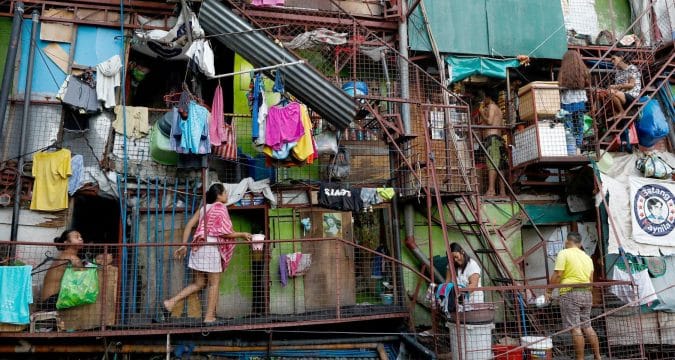
MANILA (UCAN): The first State of the Nation Address [SONA] of newly-minted Philippine president, Ferdinand Marcos, Jr., at Quezon City in the capital Manila on July 25, drew mixed reactions.
Benedictine Father Ranhilio Aquino, dean of the San Beda Graduate School of Law, praised Marcos for his detailed plans for development.
“We wanted details… we got details, down to decimal points. We wanted the economy addressed… and we were given even the more recondite points of economic projection and forecasting that many if not most of the legislators could not understand,” Father Aquino said.
However, left-wing political outfit, Kabataan Partylist, observed that Marcos’ talk ran contrary to his deeds considering he has failed to pay his father’s estate tax.
“He wants tax reforms but he has not paid a single estate tax despite numerous demand letters sent by the government. How can the Filipino people expect him to be truthful if his words run contrary to his deeds?,” party member, Fred Ogorong, asked.
Marcos’ father, the late dictator, Ferdinand Marcos, Sr., ruled the country from 1965 until his ouster in 1986, and is accused of massive rights violations, extrajudicial killings and endemic corruption. In 1999, a court ordered the Marcos family to pay 23 billion pesos [US$460 million] in taxes on his estate. However, due to non-payment, the total amount has risen to 203 billion pesos [US$3.64 billion] because of interest and penalties imposed, according to the Bureau of Internal Revenue.
He wants tax reforms but he has not paid a single estate tax despite numerous demand letters sent by the government. How can the Filipino people expect him to be truthful if his words run contrary to his deeds?
Fred Ogorong
The Manila-based Catholic Youth group, the San Lorenzo Youth Group, criticized Marcos for dodging the issue of corruption in his address.
“President Bongbong Marcos should have discussed more about corruption, especially [since] it is the main issue that is being thrown against him and his family,” Martin del la Cruz, a member of the group, said.
“We, in the San Lorenzo Catholic Youth Group, think that the president should make more public officials more accountable for their corrupt practices,” he stressed.
As we celebrate the 500 years of Christianity in the Philippines. The Chaplaincy to Filipino Migrants organises an on-line talk every Tuesday at 9.00pm. You can join us at:
https://www.Facebook.com/CFM-Gifted-to-give-101039001847033
During his SONA, Marcos Jr. promised to revive the nation’s economy and to extend social welfare schemes to serve poor, rural communities.
Speaking for an hour and 14 minutes in presence of lawmakers and the apostolic nuncio, Archbishop Charles J. Brown, the dean of the diplomatic corps, Marcos outlined an ambitious plan of recovery for an economy hit hard by the Covid-19 pandemic through what he described as “sound fiscal management.”
We’ll put up clinics and Rural Health Units [RHUs] to be visited by doctors, nurses, midwives and med-techs once a week—it would be easier for the sick to be treated without having to travel far
Ferdinand Marcos Jr.
He said, “We live in difficult times brought about by some forces of our own making, but certainly, also by forces that are beyond our control. But we have, and we will continue to find solutions.”
The president said his administration seeks to achieve 6.5 to eight per cent annual [GDP] growth from 2023 to 2028, single-digit [nine per cent] poverty rate [from current 23.7 per cent] by 2028, reduction of government debt to less than 60 per cent to GDP ratio by 2025, and per capita income of US$4,256 in 2024 [from US$3,549 in 2021].
He announced that his administration aimed to implement major reforms in the agricultural sector, which he termed “one of major drivers of our push for growth and employment.”
Marcos said, “Agrarian reform is not only about acquisition, but also about support services and distribution,” adding, “To assist this, I intend to issue an executive order to impose a one-year moratorium on the payment of land amortization and interest payments.”
Marcos also said his administration would prioritise boosting tourism with basic developments such as road improvements and other infrastructure developments.
He also promised to “bring the health care system closer to the people so that they will no longer have to go to the centres of their town, province, and region. We’ll put up clinics and Rural Health Units [RHUs] to be visited by doctors, nurses, midwives and med-techs once a week—it would be easier for the sick to be treated without having to travel far.”
He went on to add, “Improving our railway system, along with modernising existing airports and seaports, will maximise our strategic location in the Pacific. And connect our many islands,” the president said.



